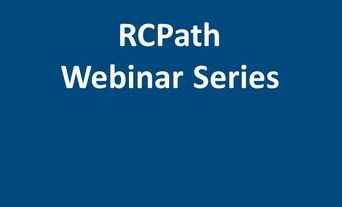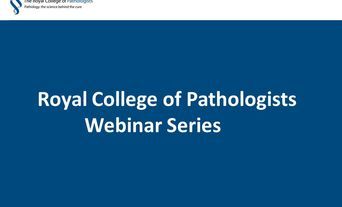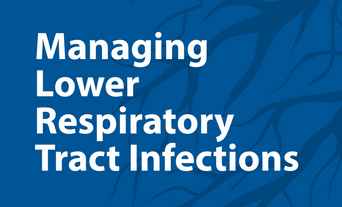Chair - Professor Mike Osborn
Studied medicine at Guy’s & St Thomas’ Hospitals, London qualifying in 1995. He became a member of the Royal College of Surgeons in 2000 and a Fellow of the Royal College of Pathologists in 2004. Currently he works as a consultant histopathologist for North West London Pathology at Imperial College Healthcare NHS Trust, London where he is clinical lead. His working time is divided between post mortems, diagnostic gastrointestinal histopathology, bowel cancer screening and teaching. He runs an intercalated BSc in Humanities, Philosophy & Law at Imperial College, London. During the COVID-19 pandemic, he and colleagues at Imperial College published work relating to findings in fatal COVID-19 infection. He was elected President of the Royal College of Pathologists in November 2020, having previously been on the RCPath Council and having had a variety of College roles, including Chair of the Cellular Pathology Speciality Advisory Committee and Death Investigation Committee.
Follow on Twitter: @mike4path
Panellist - Dr Cate Wight
Cate has been a consultant breast and gynaecological pathologist for 19 years and is currently also Clinical Head of Service for Coventry and Warwickshire Pathology Service. She acquired a disability (lower limb amputation) due to Ewing’s sarcoma, while in the first year of medical school. Cate has acquired other disabilities over the years and consequently she now uses an electric wheelchair. To enable Cate to work, she has accessed a range of support from Access to Work including support worker assistance and various pieces of equipment. Cate is also keen to emphasise the positive aspects of living with a disability, which can be transferred into the workplace such as enhanced problem-solving skills and empathy for both other staff members and most importantly patients.’
Panellist - Dr Ian Frayling
Ian qualified in Clinical Medicine at Cambridge in 1982 and until his early release from NHS Wales in 2019 he was the only Genetic Pathologist in NHS service. He is now President of the Association of Clinical Pathologists and Honorary Consulting Genetic Pathologist to the National Centres for Colorectal Disease in the UK (St Mark’s, Harrow) and Ireland (St Vincent’s, Dublin). Ian has been conferred with the rare distinction of Honorary Fellowship of the Faculty of Pathology of the Royal College of Physicians of Ireland and is a recipient of both the ACP’s Dyke Foundation Medal for his “eminence as a member of the pathology community” and the PathSoc’s Goudie Medal for his “seminal contribution to the science of pathology.” Ian is active in research and patient outreach, being an Honorary Senior Clinical Research Fellow in Cardiff University, and an Honorary Medical Adviser to Lynch Syndrome UK. Ian helped establish NICE Diagnostics Guidance DG27 and later DG42, and is also an advisor to the WHO on hereditary cancer. However, he is now a patient himself suffering from LongCovid since April 2020 and a co-founder of the pressure group LongCovidWales. So, more recently, as an informed expert patient, he has provided input into both NICE and WHO LongCovid guidance, as well as participating as a subject in research studies.
Panellist - Mr Paul Deemer
Paul has been a HR professional for over 30 years. He has worked in local government, the voluntary sector and the health service – with particular experience in the fields of recruitment, employee relations, employment law and diversity. When working for Barnardo’s he took on the role of national equality and diversity manager. After a short spell as a HR lead in an NHS trust, he was seconded into the Department of Health and Social Care’s Equality and Diversity Team to help them develop the first national strategy in this area. Paul currently works for NHS Employers – which represents and supports NHS trusts across England – and is helping NHS organisations to embed diversity and inclusion good practice across the NHS. He also works on various diversity working groups and initiatives – with bodies such as the Chartered Institute of Linguists and the Recruitment Industry Disability Initiative – and writes frequently about all aspects of diversity through various social media channels.
Paul was honoured to be named in the 2020 People Management Diversity Power List https://www.peoplemanagement.co.uk/long-reads/articles/people-management-diversity-inclusion-power-list-2020
LinkedIn profile: https://www.linkedin.com/in/paul-deemer-85803a5/
Twitter: @NHSE_Paul
Panellist - Dr Rachel Rummery
Rachel has had an eclectic career. She qualified in the 1990s, becoming a Lecturer/Honorary Registrar in Histopathology. Whilst on sabbatical doing a postgraduate law degree, Rachel became pregnant with her first child, then had a career break for 12 years. Then in 2011 came back into medicine, redid foundation competence and re-entered Histopathology training in 2013. Rachel went into Paediatric and Perinatal Pathology in 2016 and became one of the inaugural HEE National Support Fellows in 2018 and become HEE Clinical Lead for Return to Practice in 2019. Currently Rachael is ST5 in Leeds Teaching Hospitals NHS Trust and Vice-Chair of the RCPath Trainee Advisory Committee. In 2021 Rachael was diagnosed as dyspraxic, combined with inattentive ADHD. Her experiences have given Rachel a considerable interest in equality and diversity issues of all types.








